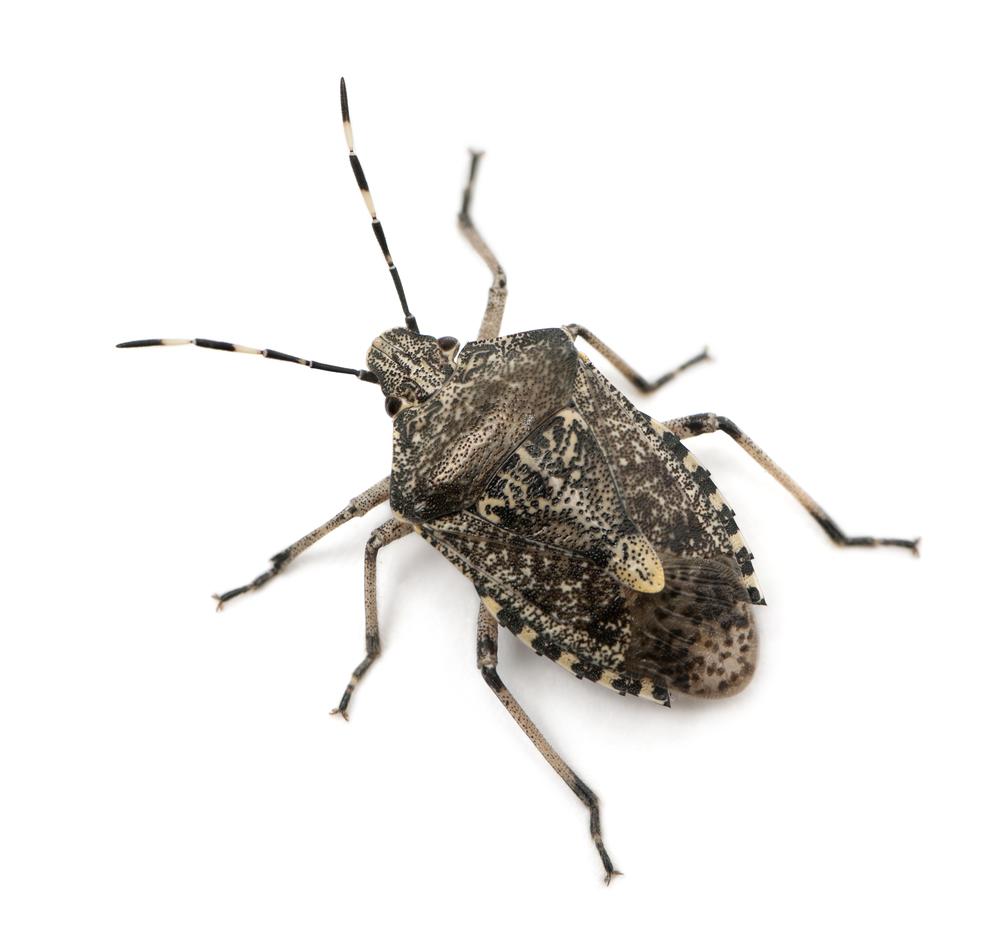Here’s how to handle stink bugs, other insects fleeing into Carolina homes this fall
Stink bugs, lady beetles, cockroaches and other insects are fleeing into our homes again, as overnight low temperatures dip into the 50s.
For bugs in the Carolinas, it’s a fall ritual, entomologists say.
Here are a few of the most common fall bugs settling into our homes and how best to control them. Ants, flies and bed bugs also pose problems in fall, but in other seasons, too.
Stink bugs
The brown marmorated stink bug first appeared in North Carolina in Forsyth County in 2009, according to Steve Schoof, an agricultural research specialist at N.C. State University.
The malodorous insect spread from Pennsylvania, where the bugs were “accidentally” introduced from Asia in the 1990s, Schoof wrote on the university’s N.C. State Extension website.
Stink bugs can destroy various small-orchard and other crops, according to the site, but they pose more of a nuisance in homes. Pick them up or try to squish them, and the bug releases a stink in self-defense.
Merely tossing them outside in hopes they’ll go back where they came from won’t do the trick, as they’ll just sneak back in, experts say.
Vacuum them up and put them in a freezer or drown them “in a dish of soapy water” before throwing them away, Schoof suggests on the site. When they leave for the season, seal window frame cracks so they can’t get in, he said.
If you vacuum them, quickly get rid of the bag “to avoid the lingering smell of the stink bugs,” according to the National Pest Management Association.
Wilkesboro-based Rid-A-Bug Exterminating, which calls stink bugs “the most annoying pests of autumn,” also suggests keeping lights off near doors as much as you can and storing food in airtight bags.
Check your clothes before returning from outside and “keep branches, shrubbery, and firewood away from your doors and windows,” Rid-A-Bug recommends.
Cockroaches
These creepy, grimy, smelly insects don’t eat through your wood or bite you, but, according to the World Health Organization, they carry microorganisms that can cause diarrhea and a host of other ailments.
Little wonder why, as these nocturnal crawlers “feed on garbage, breed in sewage and lay waste all over your kitchen counter,” according to pest control company Terminix.
Cockroach species that prefer living both indoors and outdoors also are referred to in the Southeast as Palmetto bugs, including the American cockroach variety, according to the National Pest Management Association. The name is most prevalent in South Carolina and Florida, where some cockroach species live in and near palmetto trees, according to the association.
They typically seek shelter in attics and basements, “but can basically be found in any room of your home that’s dark or dimly lit,” according to Killo Exterminating of Charlotte.
To keep cockroaches out of your house, the N.C. Department of Agriculture and Consumer Services says you should, among other actions:
• Caulk, weather-strip and repair holes around water pipes, baseboards, doors and windows.

• Put screens over windows, vents, floor drains, and ducts, which serve as “cockroach highways and hideaways.”
• Frequently discard or recycle newspapers and paper bags.
• Clean up trash and leaves outside your home, and keep woodpiles well away.
• Keep your yard clean of trash and leaves.
• Never leave dirty dishes out. Do not leave uneaten pet food out overnight.
• Fix leaky faucets and drains. Cockroaches love water.
Spiders
Just in time for Halloween, spiders enjoy spinning webs in your house more than most times of the year.
In the fall? “You are likely to see hairy wolf spiders skittering across your floor,” according to Rid-A-Bug.
North Carolina has 1,500 spider varieties, four of which are venomous: the brown recluse, black widow, false black widow and yellow sac, according to the nonprofit N.C. Poison Control, based in Charlotte.
But only the brown recluse and black widow “can cause serious pain and injury,” according to the agency.
“And both of them avoid us more than the bottom of a shoe,” The (Raleigh) News & Observer reported.
Most spiders are good for us, according to the N.C. State Extension.
“Spiders have a well-established but largely undeserved reputation as being dangerous to the health of people and their pets,” according to the site. “In truth, spiders are extremely beneficial because they prey on many insects that we consider to be true pests in our homes and gardens.”
So please leave them be, Ryan Adams of the N.C. State Extension Center for Integrated Pest Management writes in “Should I Kill Spiders in My Home?”
“Spiders are an important part of nature and our indoor ecosystem — as well as being fellow organisms in their own right,” he writes.
Lady beetles
They’re showing up seemingly out of nowhere in homes right now. Open your door to let your kitty back in, and a beetle or two is guaranteed magically to be on your floor or carpet.
More than 400 lady beetle species blanket North America, many of them serving the public good “as predators of aphids, lepidopteran eggs, and other soft-bodied insects in apple orchards,” according to the N.C. State Extension.
Plus, they look innocent enough, these quarter-inch in diameter, red or orange spotted bugs. Who would be so uncaring as to crush a tiny lady beetle once you cup one in your hand to toss it outside?
Still, lady beetles can “stain your clothes and other fabrics ... and can multiply rather quickly, so it’s best to call an exterminator,” Killo Exterminating advises.
‘Giant mutant mosquitoes’
Crane flies freak some people out because they resemble, as N.C. State Extension describes them, “giant mutant mosquitoes from Three Mile Island.”
But these gargantuan insects flying along your ceilings and walls are harmless, entomologists say.
The flies aren’t season-specific and appear everywhere across North America, but their numbers can suddenly spike during warm spells in fall, too, Andalyne Tofflemire of the Cambridge Butterfly Conservatory at the University of Guelph in Ontario, Canada, says in a Weather Network video.
“They’re not blood suckers, so you don’t need to worry about them being like this crazy mosquito on steroids that’s going to come after you,” she said.
0 CommentsGet local news delivered to your inbox!
* I understand and agree that registration on or use of this site constitutes agreement to its user agreement and privacy policy.






